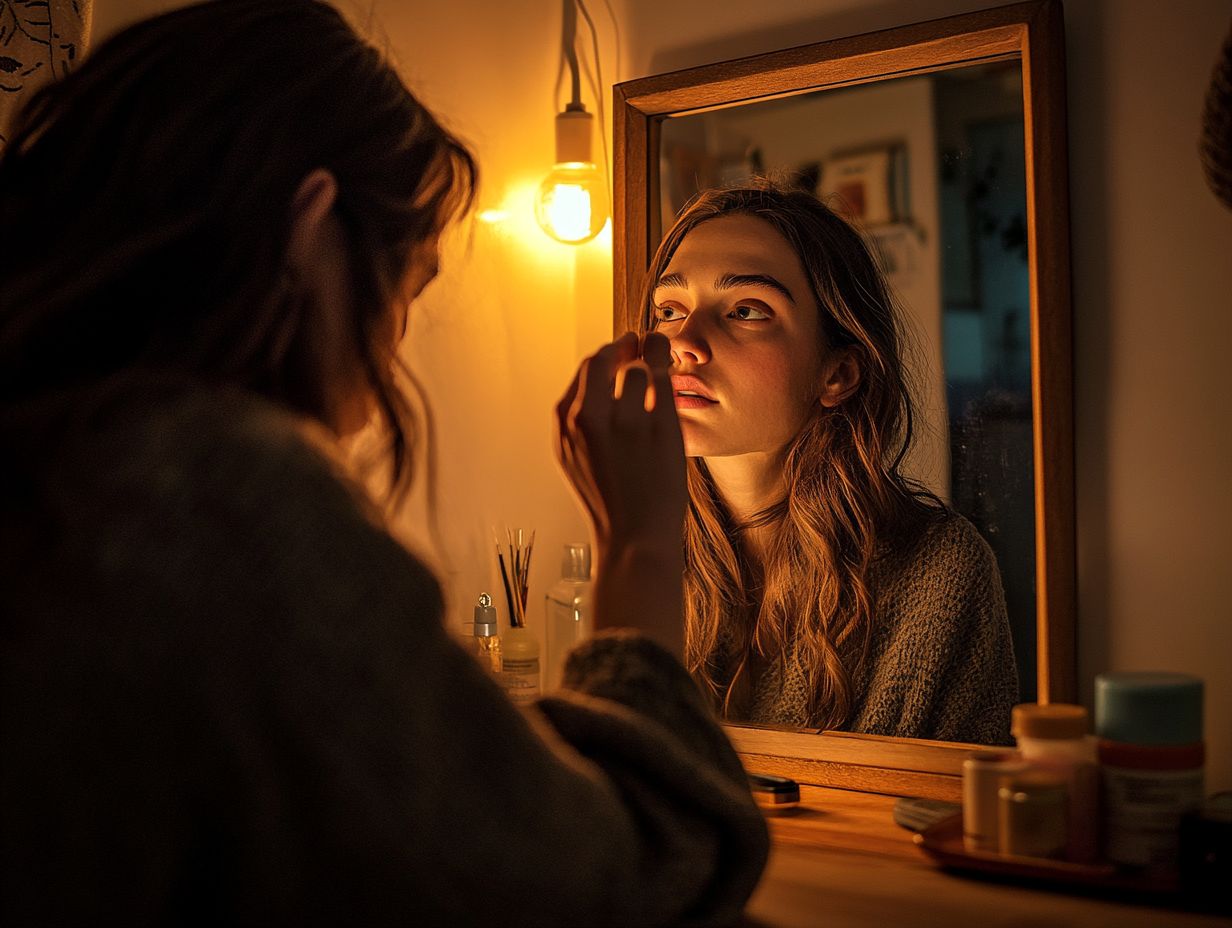Body image changes after cancer surgery are a common and challenging experience for many cancer patients. These changes can include physical alterations due to surgery and treatment side effects, leading to significant emotional impacts such as anxiety and depression. This can be particularly pronounced in cases of mastectomy and head and neck cancer.
Understanding and addressing body image concerns is crucial for improving mental health and overall treatment outcomes. Coping strategies, including both emotional and physical techniques such as cognitive-behavioral therapy, are essential for managing these changes. Support groups, counseling, and online resources can provide valuable assistance during this time.
This article explores the causes and common challenges of body image changes, and offers practical coping strategies and resources to help cancer patients navigate their journey towards body acceptance and emotional resilience. It also discusses the role of healthcare professionals in providing support and intervention strategies.
Key Takeaways:
Understanding Body Image Changes After Cancer Surgery

Body image changes after cancer surgery involve physical and emotional alterations due to surgical procedures and psychosocial issues. These changes often require adjustment difficulties and psychosocial adjustment strategies.
These changes stem from surgery-related disfigurement and dysfunction, particularly in breast cancer, rectal cancer, and head and neck cancer.
Addressing body image concerns is essential for improving mental health and treatment outcomes in cancer patients. Utilizing psychological interventions and mental health providers can aid in this process.
What Causes Body Image Changes?
Body image changes occur due to physical alterations from cancer treatments like surgery and chemotherapy, as well as oncologic treatment team interventions.
Treatment side effects, including hair loss and weight changes, affect self-perception and can lead to body image dissatisfaction.
Psychosocial factors, such as self-esteem issues and societal attitudes, also contribute to body image changes.
Support from therapy, healthcare professionals, and educational interventions aids in managing these changes.
Common Changes and Challenges
Cancer patients often experience body image difficulties due to changes like visible appearance alterations, weight changes, and surgical scars. Body image research indicates that these issues can lead to significant emotional distress.
Approximately 35% of cancer survivors report significant body image concerns, leading to anxiety and depression. These body image concerns can impact the psychosocial adjustment of survivors.
These emotional challenges hinder reintegration into everyday life, affecting social interactions and work. Empirical evidence shows that addressing these issues is critical for improving treatment outcomes.
Visible physical changes can lead to stigma, further isolating individuals and complicating recovery. Body image frameworks suggest that combating stigma through patient support groups can be effective.
Coping Strategies for Body Image Changes
Coping strategies for body image changes in cancer patients involve emotional and physical techniques to improve mental health. These strategies include both empirically-supported approaches and time-limited interventions.
Emotional coping strategies include cognitive-behavioral therapy to address self-esteem issues and body image attitudes.
Physical coping strategies focus on maintaining a positive body image through activities like exercise and nutrition, which contribute to overall body image adjustment.
Support groups offer additional ways to share experiences and coping methods, providing a vital component of body image treatment.
Emotional Coping Techniques

Emotional coping techniques are strategies used to manage emotions and stress effectively. These techniques are often part of broader psychological interventions.
Cognitive restructuring, journaling, and visualization are examples of techniques that help individuals challenge negative thoughts and improve emotional health. Mental health interventions often incorporate these methods.
These methods empower individuals to handle stress and enhance well-being, contributing to better body image outcomes.
Physical Coping Techniques
Physical coping techniques involve activities like exercise, nutrition, and self-care that support body and mind health during cancer treatment. Incorporating these activities can lead to better body image outcomes and psychosocial adjustment.
Activities such as yoga, walking, and balanced nutrition enhance mood and physical strength. These activities are essential components of body image strategies.
Self-care practices like mindfulness meditation aid emotional well-being and facilitate body image adjustment.
These techniques promote empowerment and improve body image in patients. They are often part of comprehensive body image treatment plans.
Support and Resources for Coping with Body Image Changes
Support and resources for coping with body image changes include support groups, counseling, educational interventions, and online resources. These resources are crucial for addressing body image investment and self-esteem issues.
Support groups offer a space for sharing experiences, while counseling provides strategies for body image concerns. These psychosocial oncology resources are invaluable for cancer patients.
Educational materials and online tools empower patients with coping mechanisms during cancer treatment. They provide essential information for managing body image concerns.
Support Groups and Counseling
Support groups and counseling help cancer patients address body image challenges by offering safe spaces for discussing feelings and experiences. These groups play a vital role in body image evaluation and psychosocial support.
Mental health providers facilitate sessions to guide patients and provide emotional support. Their clinical experiences are key to effective body image treatment.
- Support groups can be peer-led or professionally guided, focusing on coping strategies and intervention strategies.
- Counseling allows exploration of self-esteem impacts from cancer treatment and helps develop healthier perspectives through cognitive restructuring and other techniques.
Online Resources and Communities

Online resources and communities provide cancer patients with information and support for body image concerns. These resources often include educational interventions and time-limited interventions.
These resources include websites like Cancer Support Community, which offers articles, webinars, and support groups. These platforms often feature body image research and empirically-supported approaches.
Online forums and private Facebook groups offer safe spaces for discussing physical changes and receiving peer support. These communities can be integral to body image adjustment and psychosocial support.
Mental health apps provide guided reflections to help navigate self-image post-treatment. These apps are part of broader mental health interventions aimed at improving body image.
These platforms collectively inform and build supportive communities. They play a crucial role in patient communication and body image evaluation.
Talking to Your Doctor About Body Image Changes
Talking to your doctor about body image changes during cancer treatment is crucial for addressing concerns and improving well-being. Effective patient-doctor communication can lead to better treatment outcomes and body image satisfaction.
Discussing body image openly with healthcare professionals can help create personalized coping strategies tailored to individual needs. This open dialogue is fundamental for body image evaluation and intervention.
Questions to Ask and Communication Tips
Questions to ask healthcare professionals about body image include inquiries about body image evaluation and adjustment difficulties:
- “What are the treatment side effects that affect appearance, and how can we manage these body changes?”
- “What coping strategies or resources are available for body image issues, and can you recommend any specific psychological interventions?”
Communication tips include discussing body image investment and self-esteem issues:
- express feelings candidly to facilitate effective patient communication,
- discuss specific body image concerns and body image dissatisfaction,
- explore self-acceptance and resilience-building strategies such as cognitive restructuring.
Frequently Asked Questions
How Can I Cope with Body Image Changes After Cancer Surgery?

Coping with body image changes after cancer surgery can be challenging, but there are some strategies that can help you adjust to your new appearance. Utilizing body image strategies and body image treatment options can make this adjustment more manageable.
What are some common body image changes that can occur after cancer surgery?
Some common body image changes after cancer surgery include scarring, loss of a body part, weight gain or loss, and changes in skin color or texture. These changes often require psychosocial adjustment and intervention strategies.
Can talking to someone about my body image concerns help?
Yes, talking to someone about your body image concerns can be very helpful. This can be a trusted friend, family member, or therapist who can provide emotional support and understanding. Mental health providers can also offer body image evaluation and tailored interventions.
Are there any support groups for people coping with body image changes after cancer surgery?
Yes, there are support groups available for people specifically coping with body image changes after cancer surgery. These groups can provide a safe and supportive space to share experiences and connect with others going through similar situations. These patient support groups are essential for psychosocial adjustment.
What are some self-care practices that can help me cope with body image changes?
Engaging in self-care practices such as exercise, maintaining a healthy diet, and practicing relaxation techniques can help improve your overall well-being and self-esteem. These practices are integral to mental health interventions and body image adjustment.
Is it normal to feel self-conscious about my body after cancer surgery?
Yes, it is completely normal to feel self-conscious about your body after cancer surgery. It is important to be patient with yourself and give yourself time to adjust to any changes. Remember that your worth and value as a person is not defined by your physical appearance. Engaging in body image research can provide further insights into these feelings.





